Deciphering Various CBD Product Types: A Comprehensive Guide
With so many types of CBD products available on the market, it can be challenging to understand the differences and choose the right one for your needs. In this comprehensive guide, we will explore the various CBD product types, their categories, and help you make an informed decision.
Key Takeaways:
- Understanding the different types of CBD products is crucial for selecting the right one.
- CBD oil types include isolates, full-spectrum, and broad-spectrum CBD.
- Differentiate between CBD oil and hemp oil when making a purchase.
- Explore CBD product categories such as tinctures, capsules, edibles, vapes, and topicals.
- Consider factors like desired method of consumption, dosage requirements, and personal preferences when choosing a CBD product.
Understanding CBD Oil Types: Isolates, Full-Spectrum, and Broad-Spectrum CBD
CBD oil comes in different types, each offering unique properties and benefits. It's important to understand the differences between these types to make an informed decision when choosing a CBD product. The three main types of CBD oil are isolates, full-spectrum CBD, and broad-spectrum CBD.
Isolates
Isolate CBD is the purest form of CBD oil available. It contains only CBD without any other cannabinoids, including THC. This makes isolates a great option for those who want to avoid THC entirely. Isolates are often used by individuals who have sensitivities to other cannabinoids or prefer a THC-free product.
Full-Spectrum CBD
Full-spectrum CBD contains CBD, along with other naturally occurring compounds found in the hemp plant, such as terpenes, essential oils, and up to 0.3% THC. This small amount of THC is not enough to produce psychoactive effects but may contribute to the entourage effect, enhancing the overall therapeutic benefits of the CBD. Full-spectrum CBD is believed to provide the most comprehensive range of benefits due to the presence of multiple cannabinoids and other plant compounds.
Broad-Spectrum CBD
Broad-spectrum CBD is similar to full-spectrum CBD but without the THC. It still contains a wide array of cannabinoids and other beneficial compounds, making it an excellent option for individuals who want to experience the entourage effect without consuming THC. Broad-spectrum CBD offers the potential benefits of multiple cannabinoids working together synergistically, while still being THC-free.
| Type of CBD Oil | Contains THC? | Other Cannabinoids and Compounds |
|---|---|---|
| Isolate | No | None |
| Full-Spectrum | Up to 0.3% | Terpenes, essential oils |
| Broad-Spectrum | No | Terpenes, essential oils |
When choosing a CBD oil, consider your personal preferences and the effects you're seeking. If you prefer a THC-free option, isolates and broad-spectrum CBD are suitable choices. If you're looking for the potential benefits of multiple cannabinoids, including THC, full-spectrum CBD may be the right option for you. Always ensure to choose high-quality CBD products from reputable brands that provide third-party lab testing to verify the purity and potency of their products.
By understanding the different types of CBD oil and their unique characteristics, you can select the product that aligns with your specific needs and preferences.
Differentiating CBD Oil from Hemp Oil: What You Need to Know
When it comes to CBD products, it's important to understand the difference between CBD oil and hemp oil. While they may sound similar, they are actually quite distinct in terms of their composition and uses.
CBD oil is derived from the hemp plant and contains cannabidiol (CBD), which is known for its potential therapeutic benefits. CBD oil is typically extracted from the flowers, leaves, and stalks of the hemp plant, and it undergoes a process to remove any traces of THC, the psychoactive compound found in cannabis. This ensures that CBD oil does not produce any intoxicating effects.
Hemp oil, on the other hand, is derived from the seeds of the hemp plant. It does not contain CBD but is rich in nutrients such as omega-3 and omega-6 fatty acids, vitamins, and minerals. Hemp oil is often used as a dietary supplement or in skincare products due to its nourishing properties.
When purchasing CBD products, it's crucial to look for “hemp extract” on the label to ensure that you're getting CBD oil and not hemp oil. This distinction is important because CBD oil is the primary source of CBD, while hemp oil does not contain any CBD and offers different benefits. Knowing the difference will help you make informed decisions when choosing the right CBD products for your needs.
Table: CBD Oil vs. Hemp Oil
| Criteria | CBD Oil | Hemp Oil |
|---|---|---|
| Source | Hemp plant (flowers, leaves, stalks) | Hemp seeds |
| CBD Content | Contains CBD | Does not contain CBD |
| THC Content | While THC-free, may contain traces of THC (less than 0.3%) | Does not contain THC |
| Uses | Potential therapeutic benefits, wellness, and relaxation | Dietary supplement, skincare |
“Understanding the difference between CBD oil and hemp oil is crucial in choosing the right product for your needs. CBD oil offers potential therapeutic benefits, while hemp oil is often used as a dietary supplement or in skincare products.”
By knowing the distinctions between CBD oil and hemp oil, you can confidently navigate the CBD market and select the most suitable products for your wellness goals.
Exploring CBD Product Categories: Tinctures, Capsules, Edibles, Vapes, and Topicals
When it comes to CBD products, there is a wide range of categories to choose from. Each category offers its own unique benefits and methods of consumption. In this section, we will explore the different CBD product categories, including tinctures, capsules, edibles, vapes, and topicals. Whether you prefer oral ingestion, topical application, or inhalation, there is a CBD product category that suits your needs.
Tinctures
Tinctures are one of the most popular CBD product categories. They consist of CBD oil infused into an edible oil, such as coconut or olive oil. Tinctures are typically taken sublingually (under the tongue) for fast absorption into the bloodstream. They are known for their versatility, as they can be easily added to food or beverages. Tinctures offer precise dosing, making it easy to control the amount of CBD you consume.
Capsules
CBD capsules offer a convenient and discreet way to consume CBD. They are similar to traditional supplements or medications and can be easily incorporated into your daily routine. CBD capsules contain a pre-measured dosage of CBD, ensuring consistent and accurate dosing. They are ideal for those who prefer a tasteless and odorless option.
Edibles
If you enjoy a tasty treat, CBD edibles may be the perfect option for you. Edibles are CBD-infused food and beverages, such as gummies, chocolates, or drinks. They offer a delicious and enjoyable way to consume CBD, making it a popular choice among those who dislike the taste of CBD oil. Edibles also provide long-lasting effects as they are digested and metabolized by the body.
Vapes
For those who prefer inhalation, CBD vapes are a popular choice. Vapes involve inhaling CBD through vaporization. This method allows for quick absorption of CBD into the bloodstream through the lungs. CBD vapes come in various forms, including disposable pens and refillable cartridges. They offer a fast-acting and efficient way to experience the effects of CBD.
Topicals
If you are looking for targeted relief for skin-related issues, CBD topicals are an excellent option. Topicals are CBD-infused creams, lotions, and balms that are applied directly to the skin. They are designed to be absorbed through the skin and provide localized relief. CBD topicals are commonly used for soothing muscles and joints, reducing inflammation, and improving overall skin health.
Each CBD product category offers its own advantages and methods of consumption. Consider your preferences, desired effects, and convenience when choosing a CBD product. Whether you prefer the versatility of tinctures, the convenience of capsules, the tastiness of edibles, the fast-acting effects of vapes, or the targeted relief of topicals, there is a CBD product category that suits your needs.
Choosing the Right CBD Product: Factors to Consider
When it comes to choosing the right CBD product, there are several factors to consider. With the wide variety of options available on the market, it's important to take into account your desired method of consumption, dosage requirements, desired effects, and personal preferences.
Method of Consumption
First and foremost, think about how you prefer to consume CBD. Different products offer different methods of ingestion, and choosing the one that aligns with your preferences can enhance your overall experience. Some common methods include:
- CBD Tinctures: These are taken sublingually for fast absorption.
- CBD Capsules: They offer a convenient and consistent dosage option.
- CBD Edibles: These are CBD-infused food and beverages for a tasty and discreet way to consume CBD.
- CBD Vapes: Inhaling CBD through vaporization provides quick absorption into the bloodstream.
- CBD Topicals: These are creams, lotions, and balms applied to the skin for targeted relief.
Dosage Requirements
Consider your dosage requirements when selecting a CBD product. If you're a beginner, it's recommended to start with a low dose and gradually increase until you find your optimal dosage. Some products, like tinctures and capsules, offer precise dosing, making it easier to control your CBD intake.
Desired Effects and Personal Preferences
Think about the desired effects you're looking to achieve with CBD. Are you seeking relief from pain or anxiety? Do you want to improve your sleep? Different CBD products may offer different effects, so it's important to choose one that aligns with your specific needs.
Quote: Remember, everyone's body is unique, so what works for one person may not work the same way for another. It may require some trial and error to find the perfect CBD product for you.
Additionally, consider your personal preferences. Do you prefer a certain flavor? Are you looking for a product that is discreet and easy to use on-the-go? Taking these factors into account will help ensure you choose a CBD product that suits your individual preferences.
Lastly, it's crucial to select a reputable brand that provides third-party lab testing and transparent information about their products. This ensures that you're purchasing a high-quality CBD product that meets safety standards and contains the stated amount of CBD.
| Factors to Consider | CBD Product Examples |
|---|---|
| Method of Consumption | Tinctures, Capsules, Edibles, Vapes, Topicals |
| Dosage Requirements | Tinctures, Capsules |
| Desired Effects and Personal Preferences | Various CBD products |
| Reputable Brand with Lab Testing | Various CBD brands |
By considering these factors and doing your research, you can confidently choose the right CBD product that suits your needs and preferences. Remember to consult with a healthcare professional before adding CBD to your daily regimen, especially if you have any underlying health conditions or are taking medications.
Understanding the Different Forms of CBD: Oils, Edibles, Capsules, Vapes, and Topicals
When it comes to consuming CBD, there are several forms to choose from. Each form offers unique benefits and methods of administration. Here, we will explore the different forms of CBD, including oils, edibles, capsules, vapes, and topicals, to help you find the best option for your needs.
Oils
CBD oils are one of the most popular forms of CBD. They are versatile and can be taken sublingually or orally. Sublingual administration involves placing a few drops of oil under the tongue, allowing for fast absorption into the bloodstream. This method provides precise dosing and is ideal for those who prefer a discreet way to consume CBD. Alternatively, CBD oils can also be added to food or beverages for oral consumption.
Edibles
CBD edibles are a tasty and convenient way to consume CBD. These products come in various forms, including gummies, chocolates, and baked goods. CBD edibles offer a pre-measured dosage, making them easy to incorporate into your daily routine. They provide a longer-lasting effect as they need to pass through the digestive system before being absorbed into the bloodstream.
Capsules
CBD capsules are another popular option for CBD consumption. They offer a convenient and consistent dosage, making it easy to track your intake. CBD capsules can be taken orally with water, just like any other supplement. They are ideal for those who prefer a familiar and straightforward method of consumption.
Vapes
Vaping CBD involves inhaling CBD-infused vapor. This method allows for quick absorption into the bloodstream through the lungs. Vapes come in various forms, including disposable pens and refillable devices. Vaping provides immediate effects, making it an ideal option for those who want fast relief. However, it's important to note that the long-term effects of vaping are still being studied, and caution should be exercised.
Topicals
CBD topicals are applied directly to the skin and offer targeted relief for localized issues. These products come in the form of creams, lotions, balms, and even bath bombs. CBD topicals are commonly used for skincare, muscle recovery, and joint pain relief. They do not enter the bloodstream, making them a suitable choice for those who want to experience the benefits of CBD without systemic effects.
With various forms of CBD available, it's important to consider your preferences, desired effects, and method of administration when choosing a CBD product. Experimenting with different forms can help you find the most effective option for your needs. Remember to start with a low dosage and consult with a healthcare professional for personalized guidance.
How to Consume CBD Oil: Dosage Guidelines and Tips
When it comes to consuming CBD oil, understanding the proper dosage and following guidelines is crucial. Here, we'll explore some important tips and recommendations to help you make the most of your CBD oil experience.
1. Start with a Low Dose
When introducing CBD oil into your routine, it's recommended to start with a low dose and gradually increase as needed. Every individual is different, so finding the right dosage for you may require some experimentation. Starting low allows you to gauge your body's response to CBD and minimize the risk of experiencing any potential side effects.
2. Consider Your Desired Effects
Before consuming CBD oil, it's helpful to consider the effects you're looking to achieve. Are you seeking relaxation and stress relief? Or do you require targeted pain relief? Different dosages and consumption methods may be more suitable for specific desired effects. Understanding your goals can help guide your CBD oil consumption choices.
3. Consult with a Healthcare Professional
While CBD oil is generally considered safe, it's always a good idea to consult with a healthcare professional before incorporating it into your wellness routine, especially if you have any underlying health conditions or are taking other medications. A healthcare professional can provide personalized guidance and ensure that CBD oil won't interact negatively with any existing treatments.
By following these dosage guidelines and considering your personal needs, you can make the most of your CBD oil consumption. Remember to start low, be mindful of your desired effects, and seek professional advice when needed. CBD oil can be a valuable addition to your wellness routine, offering potential benefits for both your physical and mental well-being.
CBD Safety and Quality: What to Look for in a CBD Product
Ensuring the safety and quality of CBD products is of utmost importance to protect your health and well-being. When choosing a CBD product, there are several key factors to consider that can help you make an informed decision:
Third-Party Lab Testing
One of the most crucial aspects to look for in a CBD product is third-party lab testing. This means that an independent laboratory has tested the product to verify its contents and to ensure that it is free from harmful contaminants. Look for CBD brands that provide transparent access to their lab reports, which should clearly display the cannabinoid profile and any potential impurities.
Organically Grown Hemp
The quality of the hemp used to produce CBD products can greatly impact their overall safety and effectiveness. Opt for products made from organically grown hemp, as these are cultivated without the use of pesticides, herbicides, or harmful chemicals. Organic hemp is not only better for the environment, but it also reduces the risk of consuming any residual toxins that may be present in conventionally grown hemp.
Certifications and Awards
When selecting a CBD product, it's a good idea to look for any additional certifications or awards that a brand may have received. These accolades can serve as an indication of the brand's commitment to quality and excellence. For example, certifications such as USDA Organic or GMP (Good Manufacturing Practice) demonstrate that the brand follows strict guidelines and standards throughout the manufacturing process.
By considering these factors when choosing a CBD product, you can have peace of mind knowing that you are selecting a safe and high-quality option. Remember, always consult with a healthcare professional before adding CBD to your wellness routine.
| Factors to Consider | What to Look for |
|---|---|
| Third-Party Lab Testing | Look for lab reports verifying CBD content and absence of contaminants |
| Organically Grown Hemp | Choose products made from pesticide-free, organically grown hemp |
| Certifications and Awards | Look for brands with certifications like USDA Organic or GMP |
Conclusion
In conclusion, understanding the various CBD product types is crucial in making an informed decision. By deciphering the different CBD oil types, such as isolates, full-spectrum, and broad-spectrum CBD, you can choose the one that suits your needs. Differentiating between CBD oil and hemp oil is also important, as they are derived from different parts of the hemp plant.
Exploring CBD product categories, including tinctures, capsules, edibles, vapes, and topicals, allows you to find the consumption method that best aligns with your preferences. When choosing the right CBD product, consider factors such as dosage requirements, desired effects, and personal preferences. It's also crucial to select a reputable brand that provides third-party lab testing and transparent information about their products.
Remember, CBD is available in various forms, such as oils, edibles, capsules, vapes, and topicals, each offering unique benefits and consumption methods. When consuming CBD oil, follow dosage guidelines and consult a healthcare professional if needed. Lastly, prioritize CBD product safety and quality by choosing products that undergo third-party lab testing and are made from organically grown hemp.
Incorporating CBD products into your wellness routine can be a positive experience when approached with knowledge and caution. With a clear understanding of CBD products explained in this guide, you can confidently navigate the world of CBD and find the right product to enhance your well-being.
FAQ
What are the different types of CBD oil?
CBD oil comes in isolates, full-spectrum, and broad-spectrum varieties. Isolates contain only CBD, full-spectrum contains CBD, terpenes, essential oils, and up to 0.3% THC, while broad-spectrum is similar to full-spectrum without the THC.
How is CBD oil different from hemp oil?
While CBD oil is derived from the hemp plant and contains CBD, hemp oil is extracted from the seeds of the hemp plant and does not contain CBD. Look for “hemp extract” on the label to ensure you're getting CBD oil.
What are the different categories of CBD products?
CBD products are available in tinctures, capsules, edibles, vapes, and topicals.
How do I choose the right CBD product?
When choosing a CBD product, consider the desired method of consumption, dosage requirements, desired effects, and personal preferences. Additionally, choose a reputable brand that provides third-party lab testing and transparent information.
What are the different forms of CBD?
CBD can be consumed in the forms of oils, edibles, capsules, vapes, and topicals.
How should I consume CBD oil?
When consuming CBD oil, follow dosage guidelines and consider factors such as individual tolerance, desired effects, and CBD concentration. Start with a low dose and consult with a healthcare professional.
How can I ensure the safety and quality of CBD products?
Look for CBD products that undergo third-party lab testing to confirm CBD content accuracy and the absence of harmful contaminants. Choose products made from organically grown hemp and check for additional certifications or awards.
How do I decipher various CBD product types?
Understanding the different types of CBD oil, product categories, and forms is crucial. Consider your preferences, desired effects, and safety standards when choosing a CBD product. Start with a low dose and consult with a healthcare professional.
Source Links
- https://zebracbd.com/blogs/cbd-health-wellness/9-different-types-of-cbds-and-cbd-products-a-guide
- https://www.forbes.com/health/cbd/types-of-cbd/
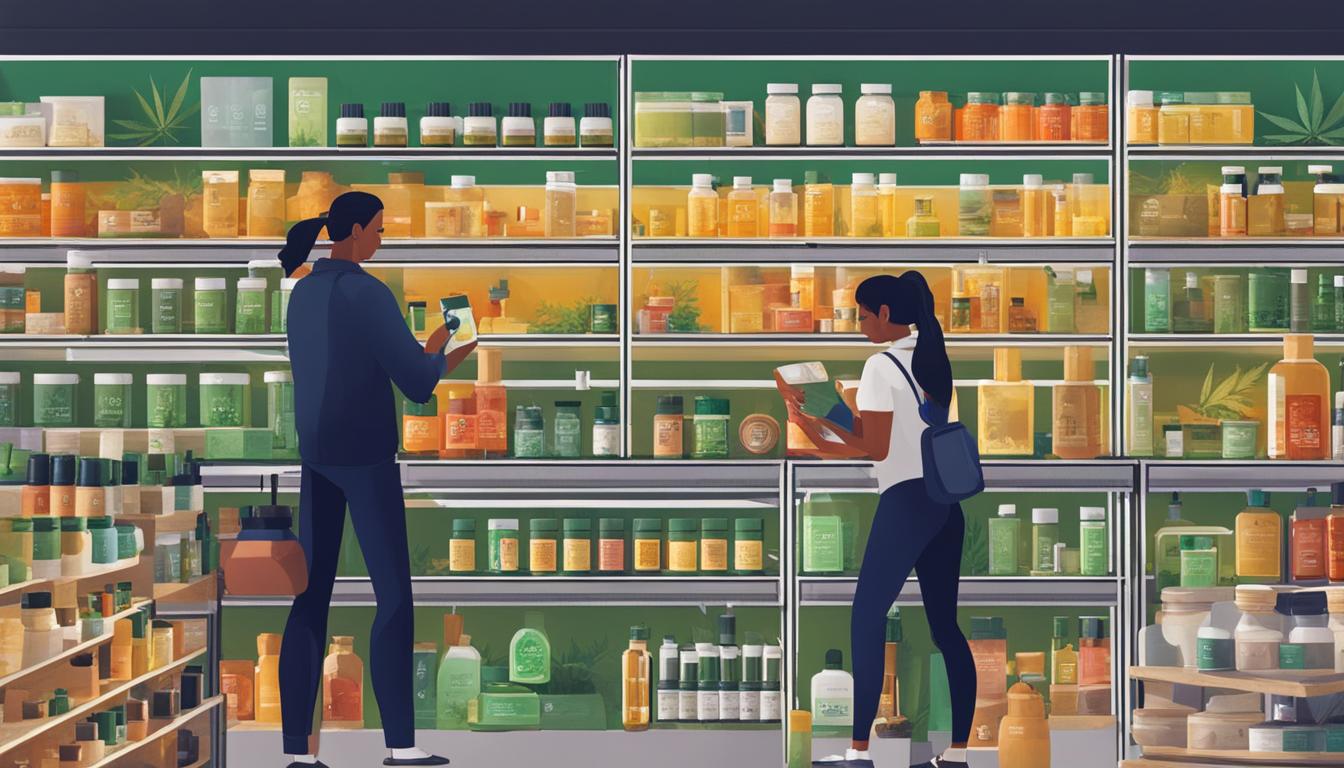

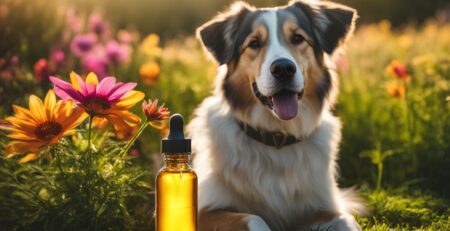

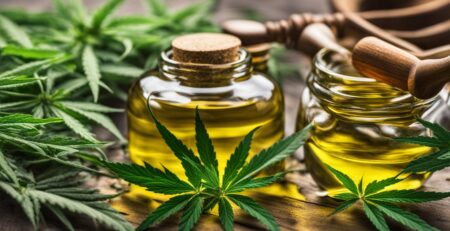
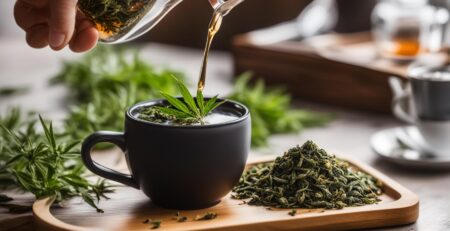
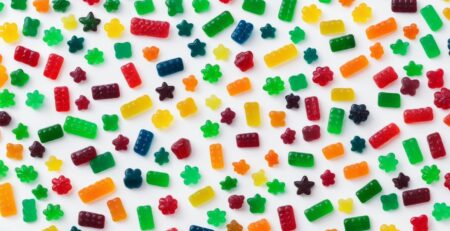
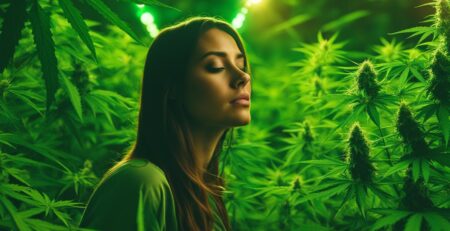



Leave a Reply